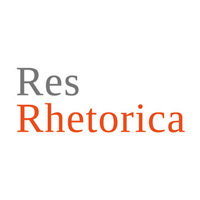Religia kontra medycyna w dialogu Jana z Bakova Sedlák povycvičený rozmlouvání s doktorem lékařským o moru maje (1582)
Religion versus medicine in the dialogue of Jan of Bakov Sedlák povycvičený rozmlouvání s doktorem lékařským o moru maje (1582)
Author(s): Klaudia Koczur-LejkSubject(s): Language and Literature Studies, Social history
Published by: Polskie Towarzystwo Retoryczne
Keywords: dialogue; plague; Czech literature of the 16th century; argumentation; persuasion
Summary/Abstract: The purpose of this paper is to trace the arguments formulated in the dialogue of Jan of Bakov Sedlák povycvičený rozmlouvání s doktorem lékařským o moru maje (1582). The first part of the paper is focused on the main works of Old Czech literature implementing the genre form of dialogue. The next part deals with the problem of plague epidemics in the light of Old Czech literature. In this context were discussed the dialogue between a trained peasant and a doctor. The conversation centers around the issue of the infectiousness of the plague. The first interlocutor argues that the disease is not contagious and comes from the sins for which God punishes people. In his arguments, he relies on the Holy Scriptures. The second one presents a different position and tries to convince his interlocutor that the plague can be transmitted by humans. In his opinion, the root cause of the disease lies in the infected air. The work is a dispute typical for Old Bohemian literature, with a didactic role arrangement. One character introduces claims, and the other refutes these arguments and presents proper views, i.e., those that are in accordance with the author's intentions. In this case, the peasant represents the author – his statements are longer and authoritative. The doctor, on the other hand, is the instructed partner, who in the finale discovers his mistake and admits that his opponent is right.
Journal: Res Rhetorica
- Issue Year: 10/2023
- Issue No: 1
- Page Range: 34-52
- Page Count: 20
- Language: Polish

